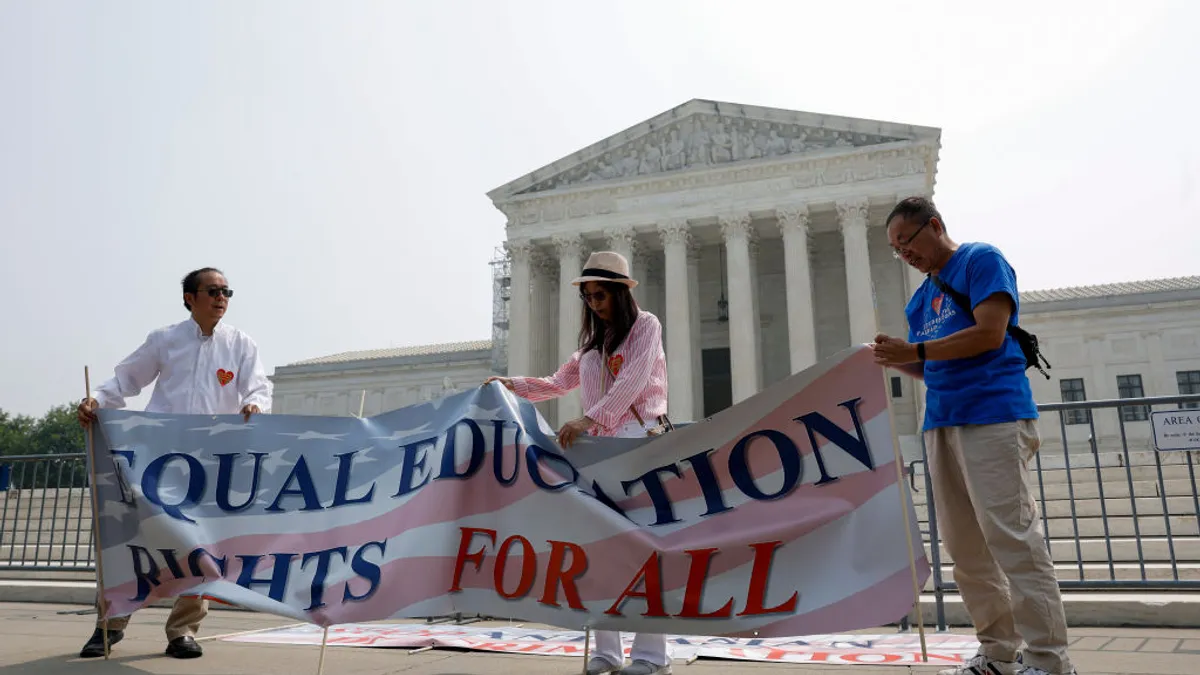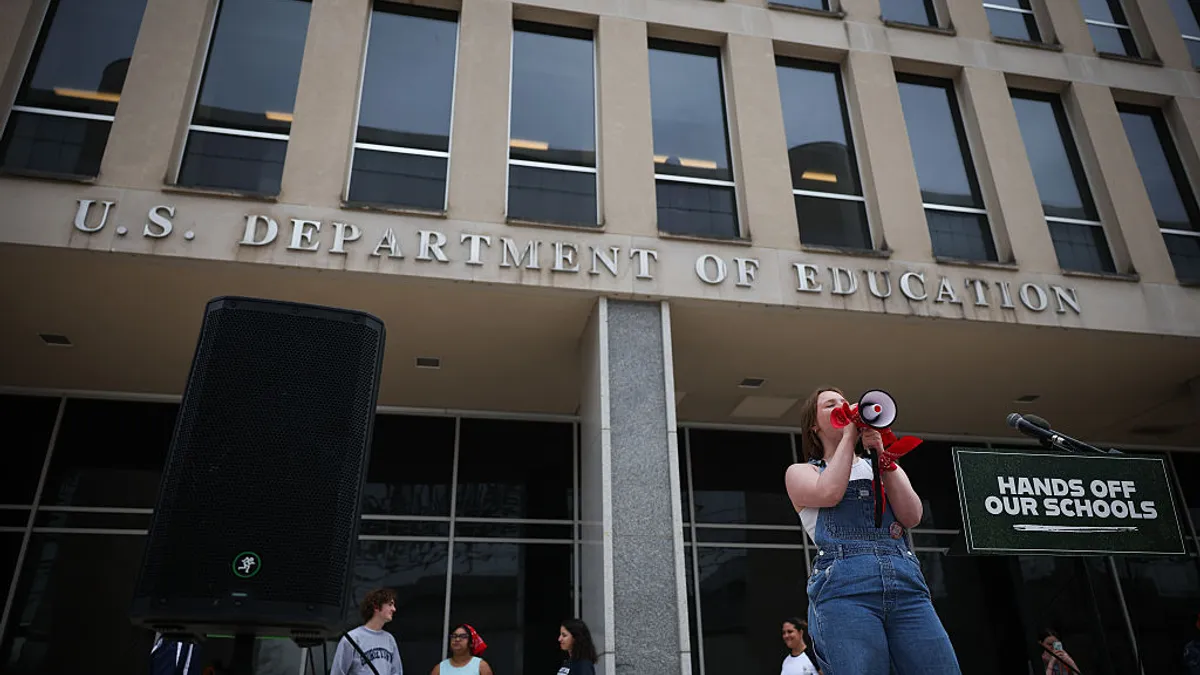School districts have won a short reprieve — until at least April 24 — from a Trump administration directive to certify they're not using diversity, equity and inclusion practices, or risk losing federal funding. A court agreement filed Wednesday postpones the original 10-day certification deadline issued on April 3 by the U.S. Education Department.
The agreement came between parties in a lawsuit filed March 5 by the National Education Association, its New Hampshire chapter, and the American Civil Liberties Union against the U.S. Department of Education. It ensures that the department's anti-DEI efforts aren't enforced until after a full hearing in the case, which is scheduled for April 17 before the U.S. District Court for the District of New Hampshire.
In addition to the certification requirement, other anti-DEI efforts temporarily curbed by the agreement include a Feb. 14 Dear Colleague letter telling schools to cease race-based programs and an anti-DEI portal subsequently launched to collect reports of "divisive ideologies" and "indoctrination."
The agreement, filed in the federal District Court in New Hampshire, comes as many Democratic-leaning states were already rebuking the department's recent directive requiring verification from districts that they don't incorporate DEI practices in school programs "to advantage one's race over another."
New York, Minnesota and Washington are among the states that decided in the last week to rebuff the department's April 3 memo warning state and district leaders that "continued use of illegal DEI practices may subject the individual or entity using such practices to serious consequences."
The letter requiring districts to certify stripping of DEI from their programs cited a high-profile Supreme Court case decided in June 2023 — Students for Fair Admissions v. President and Fellows of Harvard College — overturning race-conscious practices in college admissions.
"We will not sign additional certifications that lack authority, lack clarity, or are an assault on the autonomy of states and local school districts by misapplying a higher education admissions case," said Chris Reykdal, Washington state superintendent of public schools, in an April 8 statement. "It would be irresponsible to do so."
Other states, however, have asked their school districts to sign the certification. That direction is easier for schools in states that already have enacted "divisive concept" laws that effectively undid many diversity initiatives, said Sasha Pudelski, director of advocacy for AASA, The School Superintendents Association.
Still other states have yet to signal a decision on the matter to their districts.
"I think states are still in limbo," said Pudelski. Part of the confusion, she said, is over the administration's definition of what constitutes "illegal DEI."
“Federal financial assistance is a privilege, not a right. When state education commissioners accept federal funds, they agree to abide by federal antidiscrimination requirements," said Acting Assistant Secretary for Civil Rights Craig Trainor in an April 3 statement about the certification requirement memo. "Unfortunately, we have seen too many schools flout or outright violate these obligations, including by using DEI programs to discriminate against one group of Americans to favor another based on identity characteristics in clear violation of Title VI."
States already sign a certification of compliance with Title VI, among other federal laws, as a prerequisite to receiving federal funding. Title VI of the Civil Rights Act protects students in public schools from discrimination based on race, nationality and shared ancestry — to shield them from antisemitism, for example, or keep them from being treated differently because they are Black.
Under the current administration — and especially in light of the Supreme Court’s decision SFFA v. Harvard — the civil rights law has been used to dismantle diversity, equity and inclusion programs that were meant to level the playing field for vulnerable students.
Meanwhile, it's possible that states that have decided not to sign the certification will sue the administration if the Education Department moves forward with enforcement — as threatened in the agency's April 3 memo.
For now, Pudelski said, it's "a waiting game" to see how the federal government responds to states that refused to sign.
According to the April 3 letter requiring anti-DEI certification, "The continued use of illegal DEI practices may subject the individual or entity using such practices to serious consequences," including "substantial liabilities" like legal action by the Department of Justice over civil rights violations or efforts to recover federal funding from states or districts.
The Justice Department is already set to enforce such a move against the Maine Department of Education by April 11, after the federal Education Department the month before found Maine in violation of Title IX over its policy allowing transgender students to participate in women’s and girls’ athletic teams.
The state was given until then to sign onto a resolution agreement that would have required the state to notify its schools and have them define “females” by having “a reproductive system with the biological function of producing eggs (ova),” and “males” by having “a reproductive system with the biological function of producing sperm.” “Gender” would be the same as “sex” under the agreement.








 Dive Awards
Dive Awards













